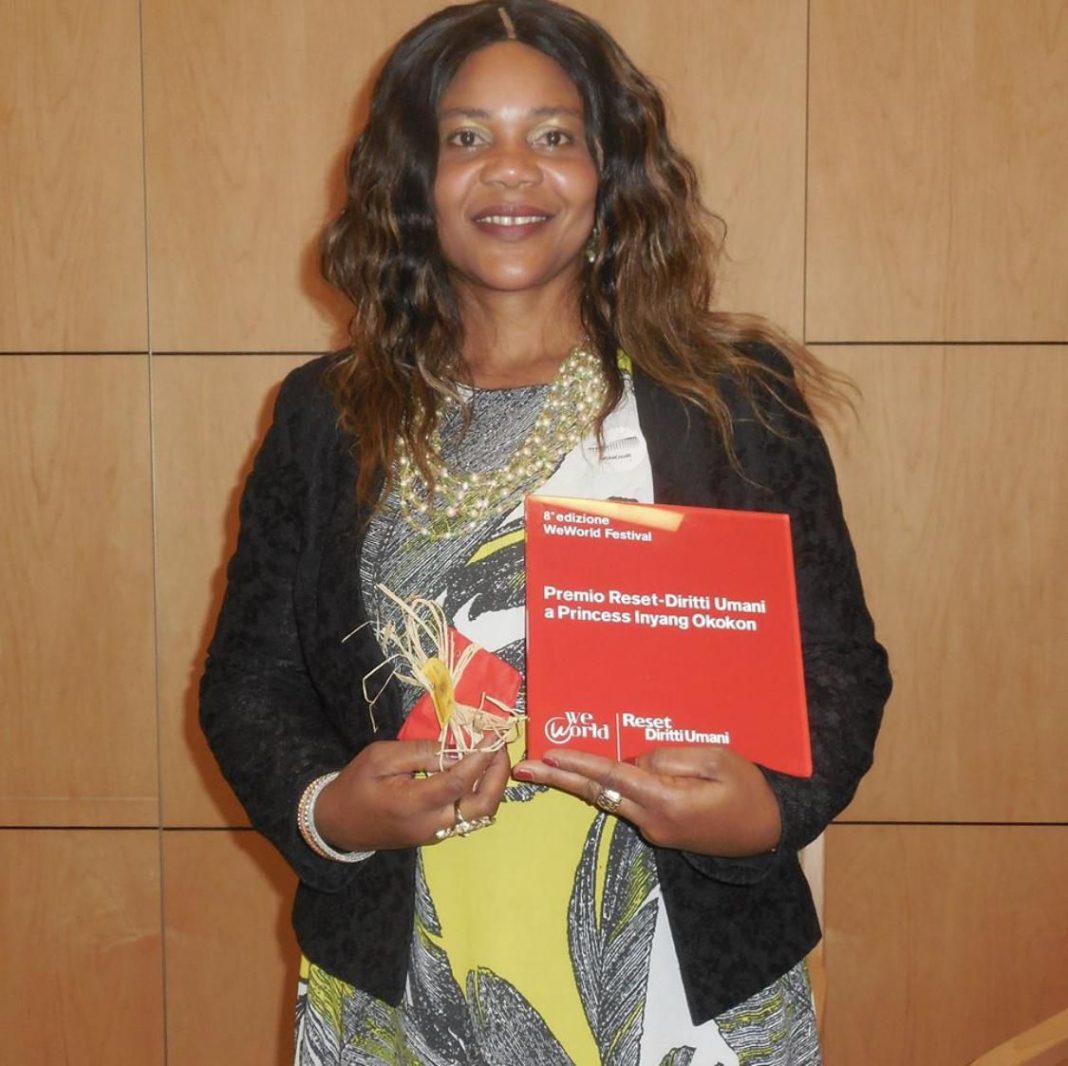Princess Okokon, co-founder of Piam Onlus
PIAM ONLUS
The pandemic has created a lot of collateral damage, and many of the women who were trafficked as sex slaves in Italy, and manipulated into prostitution by human traffickers, were left on the streets to starve.
The UN’s International Organization for Migration (IOM) highlights that more than 80% of Nigerian women and female minors who arrived in Italy were victims of elaborate and highly organized sex trafficking Nigerian mafia. A shadowy underbelly of abuse that has existed for years, but exponentially got worse for the victims during the Covid-19 lockdowns across Italy.
Princess Okokon, a former victim of sex trafficking, escaped the streets but had a deep desire to help the women that remained, “In 1999, I was on the streets for 6 months and then ran away. I saw so many women that suffered like me. I saw girls, I saw older women all on the streets. I ran from Turin with Alberto’s help. But I wanted to go back to be able to help the others left behind,” she says. Okokon and her husband, Alberto Mossino, President of PIAN Onlus an Anti Trafficking organization in Italy, together run the operation based in Asti, the northwestern region of Piedmont. The organization aims to get women off the streets, sue the people that trafficked them and empower them by learning skills that can turn into work.
Class being held for women that were victim to being trafficked
PIAM ONLUS
When the sex market in Italy stopped due to the stringent Covid-19 lockdown measures, the business of human trafficking was also at a standstill, “these women are considered to be like merchandise. The traffickers don’t see the women and many times young girls as human beings at all. When we were in lockdown, everything was closed, they couldn’t work in the streets. The traffickers forgot about them, they left them without anything, they didn’t even give them money or food to survive,” says Mossino.
That’s when calls from women across Italy looking to find help to leave their traffickers began, “the problem was that these victims were left on the streets, some we couldn’t help directly because Asti was in a red zone, so we couldn’t leave the area or have the women travel to us,” explains Okokon. “We had to help these women not be fearful of the pimps.”
Yet, the fear of leaving runs deep. The manipulation traffickers can wield is tied to juju ritual, many of the trafficked women and girls are coerced to submit to making them easily manipulated by their traffickers to repay their expensive debts, often inflated to cover costs of travel. These spiritual beliefs are often connected to magic rituals involving pubic hair, and blood under the guise of an ancient “spell” that invokes fear. Through these rituals carried out by juju priests, traffickers exert a psychological form of control over the victims making them fearful for their lives. The victims are threatened and made to believe that if they don’t comply, or if they run away, it means a possible deadly repercussion for the woman and her family back home in Nigeria.

Women that have been helped by the PIAM ONLUS
PIAM ONLUS
A former victim turned sex trafficker named Patience explains the role these rituals play in coercing victims to comply to traffickers, “we bring them to juju priests, we do this before they leave. The deity instills a fear in them. The juju priest helps to make them fear,” says Patience.
Nduka Nwanwene, Nigerian Anti-Trafficking Agency says “Human trafficking is the third most lucrative illegal business in the world after drugs and firearms. They invest so little and make so much money.”
Okokon explains that over the years, their organization has helped many women to teach them new skills, like artisanal craft work, and culinary skills, others have gone on to get degrees, “the first group of women we helped are now in Canada, London, some are even here in Asti. They studied, did courses, and even went back to school.” In recent years, however, the type of migration has changed, “now we have more young minors coming, who are so easy to take advantage of, and being that they are so young and not educated, it’s more work to help them. They often just think of money and not their future. It’s so important to help teach them to invest in themselves.”
“That’s where the commission of Turin, Genova, and Milano come in, to help identify these women. These women and minors aren’t refugees, they are trafficked victims, its something very different. Our mission is to do social integration to help these women get back on their feet. We also help them to sue their traffickers” says Okokon.
“What we can’t allow is for these women to be victims,” says Okokon. “We want to help these women to be able to have the capacity to work after they do these courses so that they are independent and not reliant on traffickers.”






